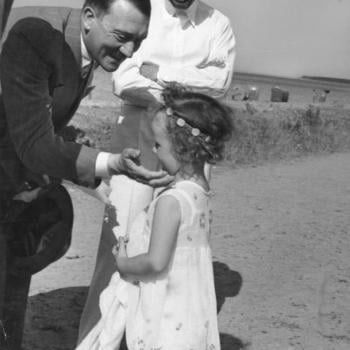The Stoics saw the universe as ordered by laws both physical and ethical, and saw that human happiness depended upon conformity with those laws.
Today, the Universal Declaration of Human Rights is a good example of contemporary Natural Law thinking. Article I states, "All human beings are born free and equal in dignity and rights. They are endowed with reason and conscience and should act towards one another in a spirit of brotherhood." The entire notion of human rights depends upon Natural Law, lest society descend into a mindless game of will-to-power. Natural Law is necessary for civil society: without it, there is really no way to assert that killing is wrong. The positivistic alternative would be that a society in power gets to decide that certain kinds of killing are OK. Functionally, US society is torn between the Natural Law foundations of the Declaration of Independence (referring in its opening sentence to "Laws of Nature and of Nature's God") and the kinds of positivism that erupt in defense of capital punishment.
The Catholic position on killing is rooted directly in Natural Law philosophy: it is always a grave evil, and must be avoided at all costs. Killing prisoners is wrong and can be justified only if it is the only option to prevent further loss of life. Killing unborn human life is wrong and can be justified only when a mother's own life is at stake. Killing enemies is wrong and can be justified only if their actions will bring about the death of others.
Consistency with the Natural Law is necessary for the well-being of a society, because without such consistency what will eventually erupt is a cycle of vengeance. Further, a civil society must build protections around the most contentious assaults against human life, because there is always the danger of the slippery slope. The morally safest course demands strong prohibitions against violations of human life, from capital punishment to abortion to war to euthanasia. Only with these strong prohibitions can a society build protections for those who are most likely to be affected by controversies: that is, to turn its attention away from defending human life toward the construction of better and better promotion of human life. In Biblical language, to turn swords into plowshares.





